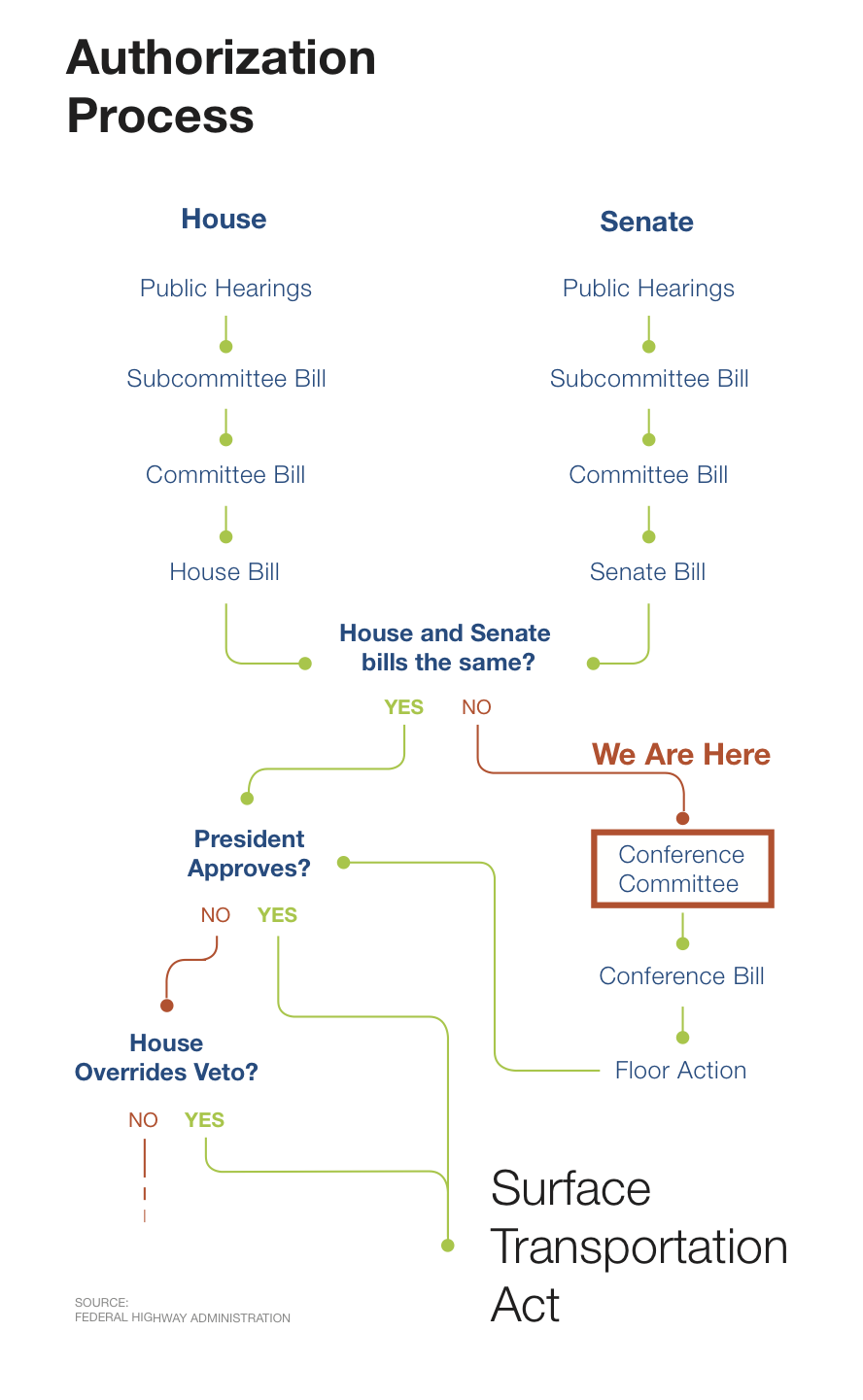If you are anything like me, then the multitude of recent articles about the Transportation Bill currently making its way through Congress seem to illustrate one thing: Democrats and Republicans may never be able to agree on anything ever again. However, once you dredge through the partisan bickering and look at what the various versions of the bill propose, there are certain sections that will directly affect Bay Area Transportation.
Background of the Bill:
- The current transportation bill was set to expire on March 31st, 2012. If this deadline had passed, then funding for transportation programs and workers would stop.
- However, on March 29th, Congress passed a 3-month extension of the current bill (the latest of many), to give themselves more time to reach an agreement.
- This extension expires June 30th, 2012.
- These types of bills are designed to address funding through their deadline. Extensions are not taken into account when funding it allocated. In the case of the current extensions, the Highway Trust Fund has paid the price. Another extension could bankrupt it and even the passage of the bill does not guarantee its solvency.
- There are two separate versions of the bill. The version proposed by the Senate and the changes proposed by the House.
- Currently, a committee is trying to reconcile the two bills so that a single bill can be put before the houses for a vote. This process is illustrated by the Transportation for America diagram below.
 Now:
Now:
- Yesterday 6/13/12- Committee Chairmen, John L. Mica, released a statement about the committee’s progress. It was not encouraging. He stated, “I remain hopeful that we can reach a bicameral compromise with the Senate. However, I am disappointed in the fact that Senate negotiators have yet to move significantly on key House reform proposals.”
The Issues:
- The Bill proposed by the Senate is for a budget of $109 Billion, so job creation is a major concern.
- The Keystone XL Pipeline and the coal ash amendment (controversial issues for another time)
- The Cardin-Cochran Agreement
The Cardin-Cochran Agreement:
- The current transportation agreement has 3 programs dedicated to pedestrians and cyclists: Transportation Enhancements, Safe Routes to School, and Recreational Trail.
- In the proposed Senate Bill these programs are combined under the Additional Activities section.
- The ambiguous wording of the Additional Activities section creates the potential for funds to be used in ways detrimental to walking and biking. So, Senators Ben Cardin, a democrat, and Thad Cochran, a Republican, offered a bipartisan amendment to ensure that cities and counties have an opportunity to use Additional Activities funds for biking and walking projects, if they choose to do so. This became the Cardin-Cochran Agreement. To illustrate how the amendment works, I have found another fun diagram:

- The idea is that local communities are in the best position to utilize federal funds to make streets safer and more accessible for walking and biking.
- The problem is that in the committee hearings to reconcile the House and Senate Bills, the House has proposed a counteroffer which would allow states to “opt out” of Additional Activities funding completely, thus eliminating the Cardin-Cochran agreement and effectively eliminating local access to federal funds.
Negotiations are geared to continue right up until the June 30th deadline. Now, hopefully, we can decipher the daily articles on Congress’s progress and understand how their inability to reach an agreement affects us….
Sources: Congress Extends Current Transportation Bill, Boxer and Inhofe…Try to Avoid 10th Extension, Boxer Changes Her Tone, Adopts a Fighting Stance, House of Representatives Aims to Eliminate Local Funds for Biking and Walking, House GOP Threatens to Wipe Out Local Control over Bike/Ped Funding
